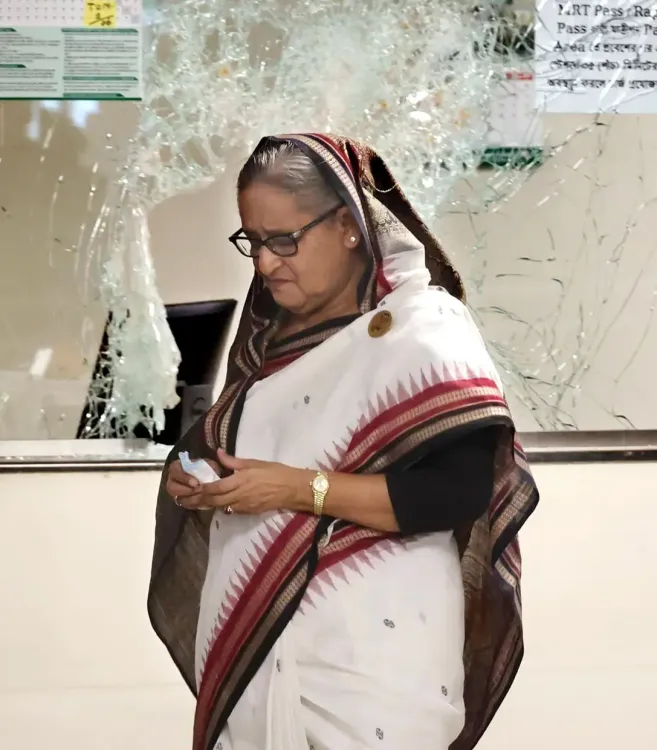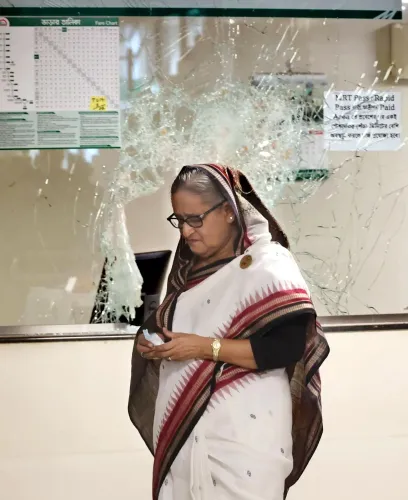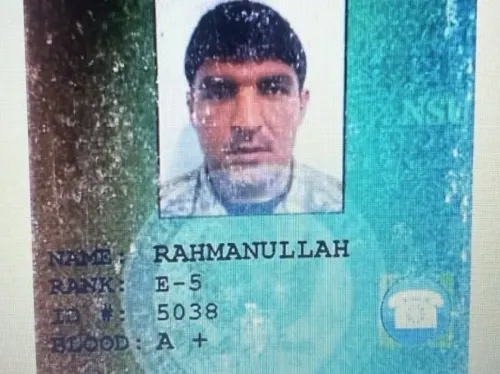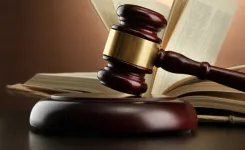Is Ex-Bangladesh PM Sheikh Hasina Facing 21 Years in Prison for Corruption?

Synopsis
Key Takeaways
- Sheikh Hasina sentenced to 21 years for corruption.
- Charges related to the Purbachal New City Project.
- Recent ICT ruling includes a death sentence for Hasina.
- Security measures increased around the court.
- Political implications for the Awami League and Bangladesh.
Dhaka, Nov 27 (NationPress) A court in Bangladesh has sentenced former Prime Minister Sheikh Hasina to 21 years in prison following her conviction in three separate corruption cases initiated by the Anti-Corruption Commission (ACC). The charges stem from irregularities related to the allocation of plots in the Purbachal New City Project.
This ruling comes shortly after a death sentence was pronounced against Hasina on November 17 by Bangladesh's ICT for her involvement in crimes against humanity during protests in July of the previous year. Moreover, two of her prominent aides also received severe sentences: former Home Minister Asaduzzaman Khan Kamal was sentenced to death, while former Inspector General of Police Chowdhury Abdullah Al-Mamun received a five-year term as a state witness.
Judge Mohammad Abdullah Al Mamun of the Dhaka Special Judge's Court-5 announced the verdict on Thursday afternoon, resulting in Hasina receiving a seven-year sentence for each of the three cases. Additionally, her son, Sajeeb Wazed Joy, and daughter, Saima Wazed Putul, were each sentenced to five years in one of the cases.
Out of the 20 other individuals involved, 19 were given varying prison sentences, while one was acquitted, as reported by The Daily Star.
In anticipation of this high-profile verdict, security measures were heightened at the Sessions Court in Dhaka, including the establishment of additional police checkpoints and deployment of Border Guard Bangladesh (BGB) personnel to ensure order.
Deputy Commissioner of the Prosecution Division of Dhaka Metropolitan Police, Miah Mohammad Ashis Bin Hasan, stated, "We have reinforced security with two extra platoons of police and BGB personnel. Local police and RAB members are also patrolling the area."
Following the controversial ICT ruling, Hasina criticized the verdict as originating from a "rigged tribunal" led by the unelected interim government of Muhammad Yunus, which she claims lacks democratic legitimacy. She denounced the judgment as politically charged and biased.
In her statement, Hasina remarked, "The call for the death penalty exposes the murderous agenda of extremist elements within the interim government aimed at dismantling Bangladesh's last elected Prime Minister and erasing the Awami League as a political entity. The people of Bangladesh, suffering under the chaotic rule of Dr. Muhammad Yunus, will not be deceived by this attempt to strip them of their democratic rights."









